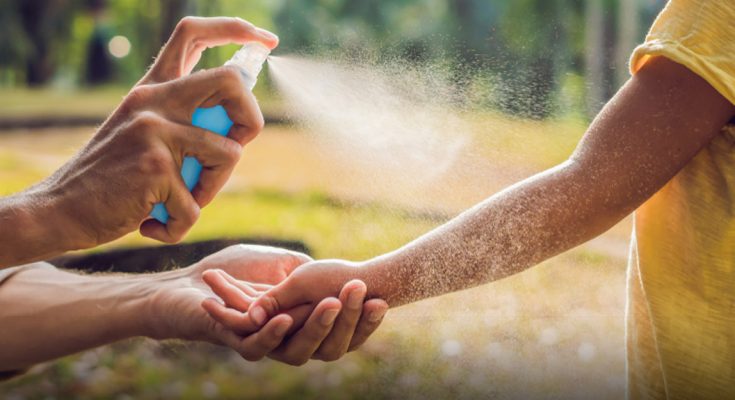Nothing beats stepping outdoors on a sunny day to take in the sights of one’s neighbourhood. One of the best ways to get in touch with nature is to spend time in a yard, deck, or patio. Some examples of this might include having a picnic with friends and family, working in the garden, or even sleeping outside. Aside from the rain, mosquitoes are the most unwelcome of guests while spending time outside. The only guests no one wants to see are mosquitoes; good friends, family, birds, and butterflies are always welcome.
These annoying insects have the potential to transform an enjoyable gathering outside into an itching nightmare. Since no one enjoys being bitten by mosquitoes, it is logical that you would be contemplating using the services of a business that specialises in mosquito control to treat your yard by spraying it with a pesticide. Perhaps you have done so already.
Unfortunately, contrary to what is stated on the packaging, these sprays will kill more than mosquitoes. The home mosquito sprays that are most often are also among the most hazardous to natural pollinators such as bees and butterflies, fish and other aquatic species, and they may even represent a danger to humans and their pets. These sprays are among the most regularly used. Before you begin spraying, here is the information you need to know.
What are the Ingredients in Mosquito Sprays?
Pyrethrins are a common kind of pesticide used by firms that rid homes of mosquitoes. Pyrethrins are a chemical compound extracted from chrysanthemum blooms and are very toxic to insects. Since they are chemically similar, synthetic compounds called pyrethroids are employed more often than pyrethrins. Whether natural or synthetic, insecticides by camphor manufacturer in india of this kind have a wide range of action and kill many more insects than only mosquitoes.
Other Repercussions Caused by Mosquito Sprays
Insecticides labelled as “mosquito repellent” poison a wide variety of insects. Aquatic organisms, such as fish and crabs, are particularly vulnerable to pyrethroids, and they may be harmed if these chemicals make their way into surface rivers through runoff from our yards. It is possible for pyrethroids to create unpleasant side effects in animals.
Water enters the sewage system
There is a risk that runoff containing pesticides from our lawns might contaminate the rivers in your region. Even though the risk to humans from pyrethroids is low when used as intended, these substances are not harmless. High levels of pyrethroids may cause unpleasant side effects in humans, including skin stinging, dizziness, headaches, and nausea that can last for hours.
You may absorb pyrethroids via your skin if you come in contact with the spray, your lungs if you breathe in contaminated air, or your stomach if you eat polluted food. Pyrethroids are especially dangerous for children and infants because of their developing bodies.
When mosquitoes are present, you may protect yourself from bites by wearing long sleeves or using a repellent containing DEET or oil of lemon eucalyptus, a botanical spray that is equally powerful as synthetic repellents.
It has also been proved that mosquito killer liquid, including lemon eucalyptus oil, are just as powerful as synthetic ones, so you don’t have to resort to using DEET. Something as simple as an electric fan may help greatly by dispersing your scent and making you less visible to insects.




